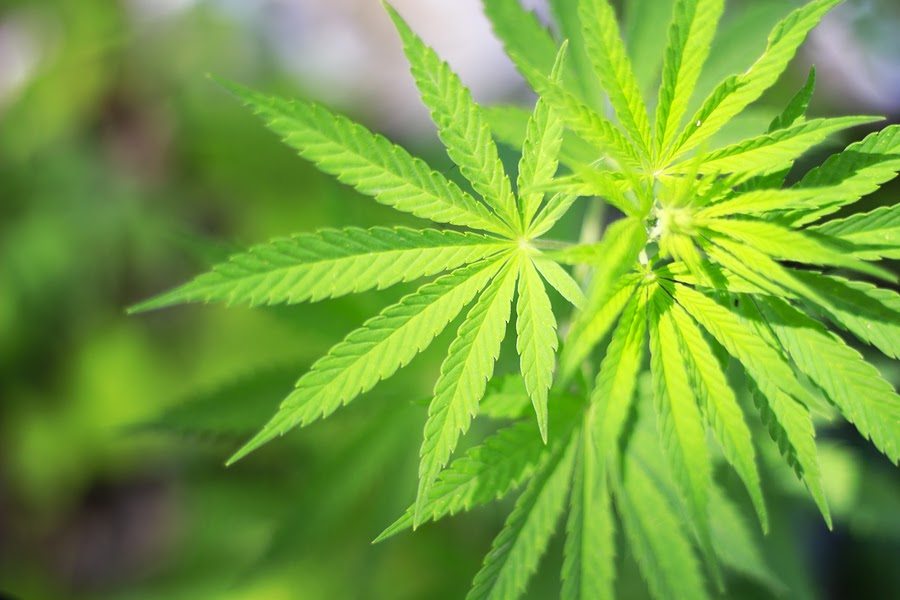As states across the US continue to legalize cannabis, products containing CBD have become available almost everywhere – even CVS and Walgreens have announced plans to sell CBD-infused products in certain states. Touted as a cure-all for ailments ranging from anxiety to chronic pain and inflammation, CBD can be found on retail shelves across the country in the form of oils, capsules, lotions and salves, and even gummies and juice. All of these products vaguely yet confidently promise consumers things like “soothing relief” from use.
However, whether or not CBD alone can effectively calm anxiety, relieve pain, or live up to many of its purported claims still appears to be largely unfounded. Boston medical marijuana professional Jordan Tishler discusses this and more about CBD.
What Is CBD?
CBD, or cannabidiol, is one of the many cannabinoids, or types of medicine, found in marijuana. Most have heard of another cannabinoid, delta-9-tetrahydrocannabinol, commonly known as THC, which is responsible for almost all of the known benefits of medical cannabis, like pain control, appetite stimulation, treatment of nausea and vomiting, insomnia, anxiety and depression, etc. It is also responsible for the feeling of intoxication, or the “high” associated with cannabis.
CBD vs. THC
Unlike THC, CBD is non-intoxicating, meaning that it does not produce a “high,” even in large doses. Only when THC is present does one experience the feeling of euphoria typically associated with marijuana, which happens when it binds to the cannabinoid receptors throughout our bodies – particularly the CB1 receptors, largely centered in our brains. THC also binds to our CB2 receptors, another kind of cannabinoid receptor found throughout our lymphatic systems, reducing inflammation. Whereas THC activates our cannabinoid receptors, CBD has actually been shown to modulate the response of these receptors when THC is present. This means that CBD, in naturally occurring tiny amounts, is crucially important to the effect of cannabis or THC. However, it doesn’t necessarily follow that if tiny amounts are good, then more is better. It is important to consult a medical marijuana professional to discuss which option is better for you.
Is CBD Safe to Use Before Work?
Although CBD does not activate our cannabinoid receptors, it does modify their response to other cannabinoids like THC. Essentially, this means that when used alone, like in the form of an isolate, CBD does not cause euphoria or paranoia, nor should it cause other effects associated with THC. Cannabidiol can, however, result in side effects such as upset stomach and lightheadedness, and since it is broken down by the liver, CBD can also interact with certain medications – including blood thinners, like Warfarin and Clopidogrel (Plavix), certain heart medications, and immunosuppressive medications like Tacrolimus. Many of these interactions could be quite dangerous.
It is also important to consider that CBD has not yet been regulated by the FDA, and therefore it is impossible to know whether or not the product you are buying actually contains the amount of CBD listed on the bottle, or even if it contains any CBD at all. More importantly, these products could contain contaminants like pesticides and heavy metals that are dangerous to your health. Worse, studies have shown that some brands have even added things like opioids or benzodiazepines, which could cause adverse effects.
What Conditions Can CBD Help Me With?
We know from a study published by the Journal of Epilepsy Research that cannabidiol has been shown to help reduce seizures in children with rare genetic seizure disorders, particularly Dravet Syndrome and Lennox-Gastaut Syndrome. It should be noted that this study only showed positive results when participants were given 10-20 milligrams of CBD per kilogram of their body weight – lower doses than this were not effective. Furthermore, there is not enough evidence to suggest that CBD is helpful in treating adults with epilepsy.
As for providing relief for people with anxiety and pain, the results are still inconclusive. Certain literature, such as this 2015 study, has shown promising evidence that CBD may be effective at reducing symptoms of anxiety. In this particular study, however, participants were given upwards of 600 milligrams of CBD. At this dose, you would need to be spending between $50-100 per day on CBD, which is just not affordable or realistic for most people.
Ultimately, the feelings of relief that many seem to report from low doses of CBD use are purely placebo. Those looking to benefit from medical cannabis without the “high” should make sure not to overlook other medicines readily found in marijuana, such as THC-A, which has been shown to decrease inflammation and act as an analgesic, all without the feeling of intoxication associated with THC.
Call Boston Medical Marijuana Healthcare Professional Jordan Tishler
If you are interested in using CBD, THC, THC-A, or any derivative of cannabis to help manage your condition, it is best to consult with a doctor who is knowledgeable about medical cannabis. Jordan Tishler, MD, is a Harvard Medical School cannabis expert in Massachusetts ready to help you determine if medical cannabis is right for you. To learn more or set up a consultation with the team at InhaleMD, give us a call at (617) 477-8886.

